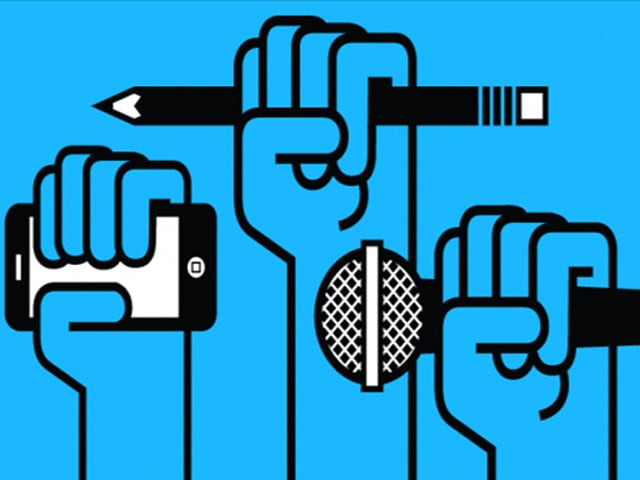Several journalists, YouTubers and politicians critical of the government or the military have vanished for weeks, later saying the intelligence services had kidnapped them. Over the past few months, given the kidnapping of Shahbaz Gill, a member of the Pakistan Tehreek-e-Insaf (PTI) party, and the arrests of journalists like Jameel Farooqui, Imran Riaz, Nafees Naeem and many more for criticising and abusing the institutes of the country, the eyes of the international and national forums and media are firmly set on Pakistan. There is a cry and hue among the liberals regarding the freedom of the press and expression in Pakistan.
Yes, it is a fact that Pakistan has been ranked the fourth most dangerous country in the world for journalists, with a total of 115 killings since 1990, according to a report issued by the International Federation of Journalists (IFJ). According to the report, journalists in Pakistan experience official attempts to restrict critical reporting and high levels of violence from both state and non-state actors. The numbers shown are because journalists cannot draw a line between freedom of expression and harming the country to the point that it starts affecting national security. This happened in the Middle East during the Arab Spring in 2011. Even then, social media played a significant role in facilitating communication and interaction among participants in political protests. Protesters used social media to organise anti-government demonstrations, igniting civil wars and toppling governments. As a result, never-ending civil wars and unrest remained in countries like Syria and Yemen.
The example of western media is always quoted as an example of being the pioneer of freedom of expression in Pakistan. When the debate of freedom of expression comes up, many do not know that the western media has its own double standards and uses media against the states they want to bring down. Portraying the invalid invasion in the gulf in their favour, criticising states which do not fall under their circle of allies is a thing for the west. One never finds journalists criticising the institutes or giving harmful statements that harm national security though.
Many in Pakistan believe that complete freedom of the press is admissible under International law. Spreading hatred for state institutions among the public and giving out statements against the military, judges and the police is legal under the umbrella of 'democracy’ and ‘freedom of expression'. Unfortunately, many in Pakistan do not know this. Under international law, utterances may be legally controlled if they cause serious harm to national security, and many governments can limit any public debate on national security matters. International law draws a line, and the provisions in international law allow the exercise of the right to freedom of expression to be limited on the grounds of national security, provided that this is explicitly provided by law and that the restriction is necessary and proportional in an open and democratic society. National security is one of the most crucial areas where interference with media freedom is in practice.
In Pakistan, where democracy is an always debatable factor, there are bigger issues at stake for the state, like national security. Many journalists believe that criticising the institutions and harming the image of their states and national security is freedom of expression. It is all about saving the country from problems that are yet to come. However, what they don’t know or don’t fully comprehend is that in the name of freedom of expression, they are harming their state and bringing it to the brink of destruction. The ‘Dawn leaks’ is an example of when freedom of expression clashed with the state’s national security. Dawn journalist Cyril Almeida “broke confidential minutes” of a meeting among the government and military officials on the ‘national action plan’ in October 2016. The only parties that benefitted from this clash between freedom of expression and national security were the enemies of Pakistan. The published story was clearly in violation of universally acknowledged principles of reporting on national security issues and has risked vital state interests through the inclusion of inaccurate and misleading content which had no relevance to actual discussion and facts.
Another example is a recent one. Senior PTI leader Gill incited against institutions and their leadership. The PTI’s chairman and former prime minister Imran Khan named and bashed the state core institutions for his benefit. Giving out statements like “we will shut down Pakistan” does not and will not benefit Pakistan. The last thing the people of Pakistan need is the country to shut down, though it is the first thing India needs, and such statements are only facilitating the enemy’s wish. A Pakistani version of the Arab Spring might occur if this keeps happening. The Arab Spring was a revolution the Middle East did not benefit from, and neither will Pakistan. In contemporary times, wars are not fought with guns or weapons; they are fought with the misuse of the term ‘freedom of expression’. The enemy could create political, economic or societal mayhem conditions and thus achieve the same purpose it would have achieved by a direct attack but at a far lower cost. Thus, arose the need to address what is often referred to as ‘non-traditional threats to national security’.
Every person, irrespective of race, caste or gender, has the right to freedom of speech and expression. Freedom of speech and expression incorporates freedom to hold conclusions and to get and confer information and ideas without obstruction by the public authority or the state. However, journalists should not confuse freedom of expression with harming national security and battering the institutions of a state but should, instead, find a balance between both.



COMMENTS
Comments are moderated and generally will be posted if they are on-topic and not abusive.
For more information, please see our Comments FAQ